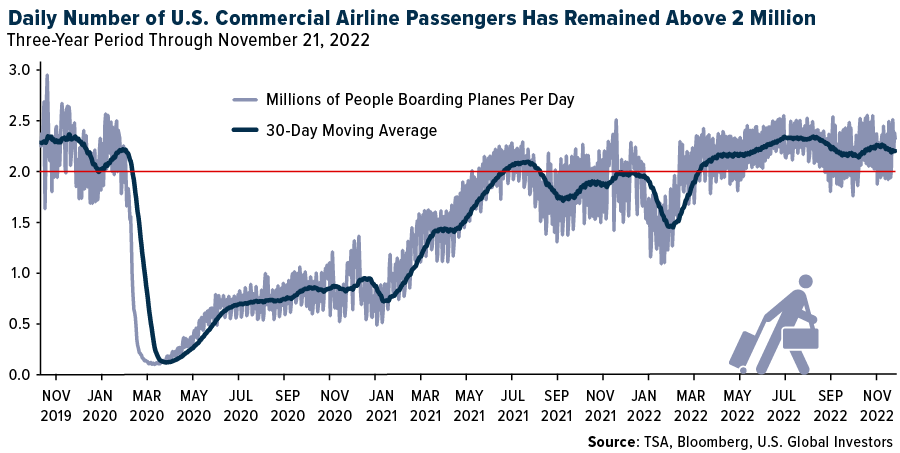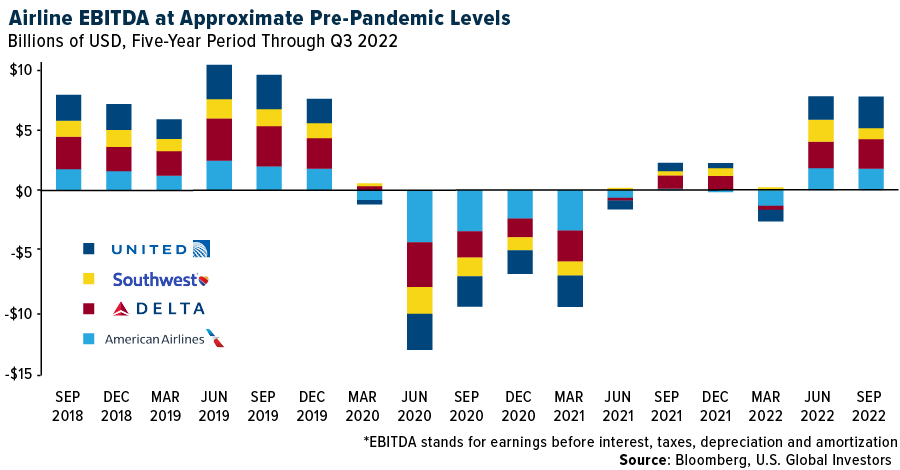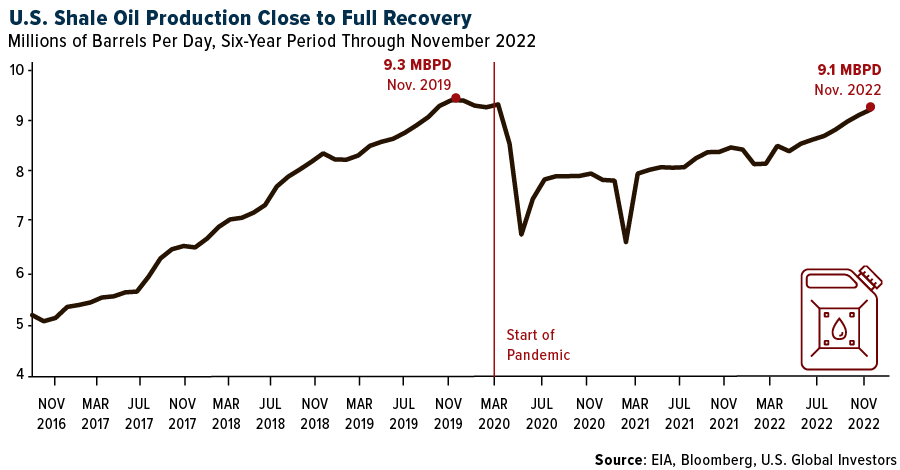Commercial air travel in the U.S. was incredibly robust last week, with passenger volumes topping or exceeding 2.3 million on most days. Thanksgiving was a major driver of demand, of course, but there may be another reason why travelers were able to board planes consistently throughout the week: remote and hybrid work.
Even though most offices and businesses have fully reopened following the pandemic, remote and hybrid work remains the norm for millions of American workers, allowing them to save both time and money they would have otherwise spent on commuting.
Working off-site has been a huge benefit to not just customers but also airlines, according to Helena Becker, an airlines analyst at Cowen. This type of work “enables [airlines] to be less ‘peaky’” and enables customers “to get better pricing,” Becker says.
Robert Isom shares the same idea. Speaking at the Skift Aviation Forum in Dallas, the American Airlines CEO said that “demand is more spread out” due to the rise in remote work, adding that consumers, airlines and airports are no longer “beholden to the structure of the past.”
This helps explain why air travel demand was strong throughout the week instead of it being concentrated on the days immediately preceding and following Thanksgiving Day, as has historically been the case. On Sunday, Monday and Friday of last week, more people boarded commercial jets than they did on the equivalent days in 2019, according to Transportation Security Administration (TSA) data.

What Americans Have Gained by Working Remotely
Remote work isn’t the perfect fit for every company or employee, but the potential benefits are easy to see.
According to Global Workplace Analytics, people who work remotely, either full-time or part-time, can save between $2,000 and $7,000 annually in transportation and work-related costs. They can also gain back the equivalent of two to three weeks per year in commuting time. An estimated $20 billion could collectively be saved at the pump.
With offices now fully open, you might think that remote and hybrid work is disappearing, but the opposite appears to be true. Gallup, the analytics and advisory firm, found that work away from home actually increased in 2022, accounting for 49% of the U.S. labor force in June, up from 42% in February. “Fully on-site work is expected to remain a relic of the past,” the firm says, though you’re welcome to disagree.
Will “Workcations” and “Bleisure” Replace Corporate Travel?
Last week I was in Dubai, attending and speaking at the Alternative Investment Management, or AIM, Summit, and I also had the opportunity to take in the World Cup in Qatar.
I suspect there were hundreds more World Cup spectators who were also combining work and vacation (workcation), business and leisure (bleisure).
For the past year and a half, analysts and the media have questioned whether corporate business travel will ever return to pre-pandemic levels, as leisure travel has. An October survey of corporate travel managers in the U.S. found that domestic business travel volume has returned to 63% of 2019 levels, while international business travel is still only at 50%. Based on current trends, it may take until 2024 or 2025 before corporate spending on travel has fully recovered to pre-pandemic levels.
Thanks to the widespread acceptance of remote work, however, bleisure travel appears to be replacing traditional corporate travel, if not on a revenue basis (business class can cost three to four times as much as economy class) then certainly by volume. Domestic and international load factors, which measure the seat utilization rate on a schedule flight, have returned to pre-pandemic levels.
The same can somewhat be said about airlines’ profitability. As most of you know, EBITDA stands for earnings before interest, taxes, depreciation and amortization. It tells you how much profit a company made before debt and taxes were paid and before non-cash items like depreciation and amortization were factored in.
Looking at EBITDA for the Big Four U.S. carriers, we see that profitability is nearing pre-pandemic levels, even as American Airlines (NASDAQ:AAL), United Airlines Holdings (NASDAQ:UAL), and Delta Air Lines (NYSE:DAL) reported record revenues in the third quarter of 2022.

Lower Fuel Costs Would Be a Windfall
As you may have noticed, air fares have risen due to inflation, but they haven’t risen enough to compensate for higher fuel expenses.
The Organization of Petroleum Exporting Countries (OPEC), along with Russia, agreed to oil production cuts in early October, making it even more challenging for crude prices to fall and give consumers, including airlines, a break.
Here in the U.S., however, oil production continues to rise from pandemic lows and is nearing 2019 levels. Looking just at production from U.S. shale projects, which ordinarily require fracking to obtain oil, output has increased for seven straight months through November. This month, some 9.1 million barrels per day (MBPD) are expected to have been recovered from the ground. That’s only 200,000 BPD less than the all-time monthly high of 9.3 MBPD, set in November 2019, soon before the pandemic.

Jet fuel accounts for 25% to 35% of an airline’s total expenses, so lower fuel costs would be a nice windfall. According to Bloomberg, a new plane pays for itself in 12 years when jet fuel prices are lower than $4 per gallon, and as of last Friday, a gallon was $3.18.
***
Disclosure: All opinions expressed and data provided are subject to change without notice. Some of these opinions may not be appropriate to every investor. By clicking the link(s) above, you will be directed to a third-party website(s). U.S. Global Investors does not endorse all information supplied by this/these website(s) and is not responsible for its/their content.
Holdings may change daily. Holdings are reported as of the most recent quarter-end. The following securities mentioned in the article were held by one or more accounts managed by U.S. Global Investors as of (09/30/22): American Airlines Group Inc., Delta Air Lines Inc., United Airlines Holdings Inc., Southwest Airlines (NYSE:LUV) Co.
